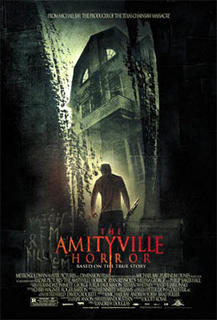NEW IN THEATERS: Stay

STAY (2005)
My Rating: **** ½ (out of *****)
Starring: Ewan McGregor, Naomi Watts, Ryan Gosling, Janeane Garofalo, Bob Hoskins
Director: Marc Forster
My Review:
The story is relatively simple, but the presentation is mysterious, tricky, and complex. Sam Foster (the ever reliable Ewan McGregor) is a "substitute shrink" for the morose Henry Letham (a brooding Ryan Gosling), a tortured young art student who survived a car crash on the Brooklyn Bridge. Sam is substituting for Henry's regular therapist, Beth (Janeane Garofalo, looking particularly disheveled and disturbing), who is "taking a break" for two weeks. Henry makes definitive statements about his intention to commit suicide in three days, and then proceeds to disappear. Sam frantically searches for Henry, and things go from weird to weirder, with people bleeding spontaneously from the head, multiple episodes of deja vu, the inexplicable appearance of several doubles and triples of people, and a miraculous healing. It's as if Sam and Henry's individual worlds are colliding, and the distinction between patient and therapist, stable and imbalanced, suicidal and hopeful, becomes increasingly blurred. Sam's girlfriend Lila (Naomi Watts, sterling as usual) - who survived her own suicide attempts in the past - plays a pivotal role that is not always clear until the film's final moments. Bob Hoskins also turns in a spectacular performance in his brief but crucial role as Sam's blind, chess-playing mentor.
The vague, ethereal approach of this film will undoubtedly turn a lot of people off. While clearly not for all tastes, Stay has a wealth of pleasures for moviegoers who are willing to take its abstract, nonlinear journey. On a philosophical and spiritual level, the movie offers a relevant, impacting look into the nature of guilt, at what it means to truly "let go" of the things that keep us in chains, and at the importance of choosing life instead of death.
Artistically, Stay is a masterpiece. The editing and cinematography are truly some of the best in recent memory, not simply due to their quality, but because the filmmakers take risks. In so doing, they give us a gift we have almost completely given up hope of receiving: the sense of something new - "I've never seen anything quite like this before!" The crafters of Stay help restore our faith in the ability of films to surprise and challenge us.
In terms of emotional content, Stay slowly, stealthily infiltrates. After the first viewing, we just need to step back and gather our bearings. The effect is more intellectual and less emotional as we seek to sort out what exactly happened. Then, as the latter becomes clearer, the ramifications of the story begin to impact our hearts. Sadness and humility in light of our fragile human condition appear at one end of the spectrum. At the other, a deep sense of love and beauty - even out of the most painful and unwelcome of circumstances - shines through.
You probably wont get to see Stay in theaters. This same sad fate meets many an improperly marketed art house flick. That said, I strongly encourage those who are willing to take a trippy, unforgettable head trip that will touch their hearts as well as their minds to grab this film as soon as it hits the DVD and video stores. It may very well be that, in the safety and limitless opportunities afforded by the home entertainment realm, Stay becomes a cult classic.
R, for some disturbing images involving violence and bloody injuries, moments of strong language, thematic material, and a scene of sensuality with semi-nude exotic dancers





